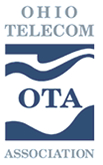WASHINGTON — Senior Republicans conceded yesterday that the grueling fight with President Barack Obama over the regulation of Internet service appears over, with the president and an army of Internet activists victorious.
The Federal Communications Commission is expected on Thursday to approve regulating Internet service like a public utility, prohibiting companies from paying for faster lanes on the Internet. While the two Democratic commissioners are negotiating over technical details, they are widely expected to side with the Democratic chairman, Tom Wheeler, against the two Republican commissioners.
And Republicans on Capitol Hill, who once blasted the plan as “Obamacare for the Internet,” now say they are unlikely to pass a legislative response that would undo perhaps the biggest policy shift since the Internet became a reality.
“We’re not going to get a signed bill that doesn’t have Democrats’ support,” said Sen. John Thune, R-S.D., chairman of the Senate Commerce Committee. “This is an issue that needs to have bipartisan support.”
The new FCC rules are still likely to be tied up in a protracted court fight with the cable companies and Internet service providers that oppose it, and it could be overturned in the future by a Republican-leaning commission. But for now, Congress’ hands appear to be tied.
The FCC plan would let the agency regulate Internet access as if it is a public good. It would follow the concept known as net neutrality, or an open Internet, banning so-called paid prioritization — or fast lanes — for willing Internet content providers.
In addition, it would ban the intentional slowing of the Internet for companies that refuse to pay broadband providers. The plan also would give the FCC the power to step in if unforeseen impediments are thrown up by the handful of giant companies that run many of the country’s broadband and wireless networks.
Republicans hoped to pre-empt the FCC vote with legislation, but Senate Democrats insisted on waiting until after Thursday’s FCC vote before even beginning to talk about legislation of an open Internet.
And an avalanche of support for Wheeler’s plan — driven by Internet companies as varied as Netflix, Twitter, Mozilla and Etsy — has swamped Washington.
“We’ve been outspent, outlobbied, we were going up against the second-biggest corporate lobby in D.C., and it looks like we’ve won,” said Dave Steer, director of advocacy for the Mozilla Foundation, the nonprofit technology foundation that runs Firefox, a popular Web browser.
“A year ago today, we did not think we would be in this spot,” Steer said.
In the battle over so-called net neutrality, a swarm of small players, from Tumblr to Etsy, BoingBoing to Reddit, has overwhelmed the giants of the tech world such as Comcast, Verizon and TimeWarner Cable, with a new brand of corporate activism — New World versus Old.
The biggest players on the Internet, Amazon and Google, have stayed in the background, while smaller players — some household names such as Twitter and Netflix, others far more obscure, such as Chess.com and Urban Dictionary — have mobilized a grass-roots crusade.
“We don’t have an army of lobbyists to deploy. We don’t have financial resources to throw around,” said Liba Rubenstein, Tumblr’s director of social impact and public policy. “What we do have is access to an incredibly engaged, incredibly passionate user base, and we can give folks the tools to respond.”


